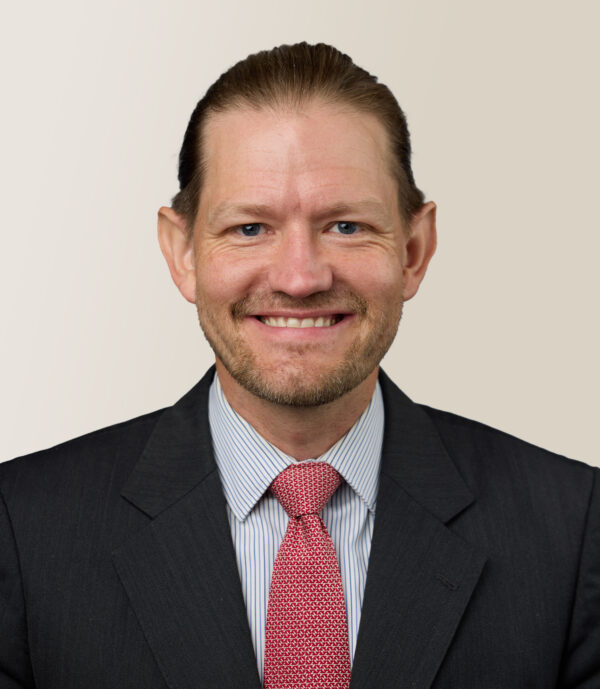The Ravi K. Mehrotra Institute for Business, Markets, and Society will be a place where actionable research illuminates the path forward, where innovative ideas are nurtured, and where the next generation of business leaders better understand the delicate balance between firm prosperity and societal good.
Is Business Broken? Podcast: These days, it’s hard to ignore the debate over the role business should play in society. The terms greenwashing, tech monopolies, and corporate greed seem ubiquitous. But on the other hand, maybe business could actually help solve some of today’s biggest problems? The Is Business Broken? podcast features conversations with academics, industry leaders, and politicians that ask the thorny questions necessary for this moment and help us navigate real world solutions. Listen to the podcast here.
Issue360: GEN-AI Discussion Platform: Through this simulated civil discourse and debate, future business leaders will enhance their understanding of the tradeoffs they face within the context of addressing societal grand challenges. For example, meeting current clean energy goals will require coordination between government regulators, financiers, old and new technology companies, and public interest groups. In this simulation experience, participants will quickly learn about the challenges of their assigned role by harnessing the power of Gen-AI tools. The experience will be structured to expose the nuances of the playing field in a format that can be reused in multiple scenarios (e.g. education goals, health goals).
SENDEX (Business Sentiment Indices): This initiative aims to build a new asset for evaluating public sentiment towards business. Unlike prior work built upon survey data, this team will leverage Large Language Models (LLMs) and public news and media sources to perform an aspect-based sentiment analysis regarding the perception of business. Various sentiment indices will be used to infer changes in public opinion over time, geography, and stakeholder. This project explores the question: What are the drivers of business sentiment? while also developing a novel aggregate sentiment index from disaggregated indices and exploring how to correct for possible media biases. Read more about the research findings here.
Corporate Impact Measurement: By integrating Environmental, Social, and Governance factors into their strategies, more and more companies are seeking to foster long-term value while having positive societal impacts. Investors use ESG data to better understand financial value and risk factors that may not be reflected in traditional financial disclosures. Through a portfolio of projects, this ongoing research program explores ways to improve ESG practices from disclosure standards to how investors use the data. Research Questions: What is the risk associated with corporate carbon emissions targets? How do today’s ESG risk disclosures compare with SASB recommendations? Can we measure shareholder preference regarding environmental trade-offs? Why does the impact of green investing on polluting firms’ costs of capital appear to be limited? Can we predict when a sociopolitical issue will blow up a brand?
Paying for progress: ensuring financial access to life science innovations: Gene and Cell Therapies (GCTs) are one of the most exciting biomedical advances of our time. The result of decades of public investment in fundamental science and private investment in development, these remarkable innovations are offering cures for previously untreatable diseases. But with price tags starting at $1 million per patient, GCTs present a major challenge to our system of financing health care. Can we sustain progress in bringing innovative therapies to market while making the results of these efforts accessible to all who need them? We will bring together experts and thought leaders from industry, government, and academia to discuss opportunities for novel collaborative solutions to navigate the challenges ahead. Research Questions: How can we adapt our successful business-government R&D partnership model to guarantee affordable drug prices for new cell or gene therapy treatments? Are there alternatives to traditional funding models for R&D research that improve patient access?
The funding model for social media platforms and Section 230: Misinformation is a widespread problem on social media. Under the current “section 230” regulation, companies are not held responsible for the content shared on their platforms. This research will explore the advertisement funding model of internet platforms and develop market solutions to reduce misinformation. Research Questions: How does the funding model of social media platforms have to evolve to tackle misinformation? What is the best way to reform the advertisement funding model - Section 230 regulatory reform or purely market solutions? Or a combination? How should platforms be regulated?
The Ravi K. Mehrotra Institute for Business, Markets, and Society seeks proposals from within Boston University for new research, educational, and outreach initiatives that align with the institute’s mission. Click here for more information on how to submit a proposal.

J Hunt, IM Cockburn, J Bessen (2025). Is Distance from Innovation a Barrier to the Adoption of Artificial Intelligence? Working Paper. National Bureau of Economic Research.

RM Conti, ME Wosińska (2025). The Economics of Generic Drug Shortages: The Limits of Competition. Journal of Economic Perspectives 39 (2), 79-102
RM Conti, P Demartino, J Gruber, AW Lo, Y Sun, J Wu (2025).Innovative Insurance to Improve US Patient Access to Cell and Gene Therapy. The Milbank Quarterly
RM Conti, C Mcglave, MB Rosenthal, D Rodin (2024). US Trends In Anticancer Medicine Pricing and the Impact Of Competition, 2014–20. Health Affairs 43 (12), 1719-1727
M Park, AL Carson, ER Fox, RM Conti (2024). Stockpiling at the onset of the covid-19 pandemic: An empirical analysis of national prescription drug sales and prices. Management Science 70 (10), 6483-6501
KP Chua, RM Conti, P Lagisetty, ASB Bohnert, U Nuliyalu, TD Nguyen (2024). Association Between Cost-Sharing and Buprenorphine Prescription Abandonment. Journal of General Internal Medicine 39 (12), 2160-2168
KP Chua, RM Conti, P Lagisetty, AS Bohnert, S He, TD Nguyen (2024). Association between cost sharing and naloxone prescription dispensing. JAMA 332 (2), 124-132
HF Lynch, RM Conti, JL Contreras (2024). Industry price guarantees for publicly funded medicines: learning from Project NextGen for pandemics and beyond. Journal of Law and the Biosciences 11 (2), 1-19
TW Levengood, RM Conti, S Cahill, MB Cole (2024). Assessing the Impact of the 340B Drug Pricing Program: A Scoping Review of the Empirical, Peer‐Reviewed Literature. The Milbank Quarterly 102 (2), 429-462
RM Conti, RG Frank, DM Cutler (2024). The myth of the free market for pharmaceuticals. New England Journal of Medicine 390 (16), 1448-1450
M Vogel, P Kakani, A Chandra, RM Conti (2024). Medicare price negotiation and pharmaceutical innovation following the Inflation Reduction Act. Nature Biotechnology 42 (3), 406-412
M Vogel, RM Conti, A Chandra (2024). Biopharma venture capital and the Inflation Reduction Act. Health Affairs Forefront
MV Pauly, DM Lederman, RM Conti (2024). The Inflation Reduction Act Coinsurance Glitch. Health Affairs Forefront

Florian Ederer and Bruno Pellegrino (2025). A Tale of Two Networks: Common Ownership and Product Market Rivalry, accepted at Review of Economic Studies.
Miguel Antón, Florian Ederer, Mireia Giné, and Martin Schmalz (2025). Innovation: The Bright Side of Common Ownership?, Management Science, Vol. 71, No. 5, pp. 3713-3733.

Andrew King, Do Sustainable Companies have better Financial Performance? Revisiting a Seminal Study, Journal of Management Scientific Reports 3 (2), 88-118
Stroehle, J., Gümüşay, A. A., Edinger-Schons, L. M., Vogel, A., Ebrahim, A., Rasche, A., King, A., Pucker, K., Barker, R., Reinecke, J., Michelon, G., Cooper, S., Etzion, D., Harji, K., Besharov, M., Mayer, C., Hsieh, N., & van den Terrell, E. (2025). A Critical Examination of Corporate Environmental and Social Impact Measurement and Valuation. Journal of Management Inquiry, 0(0).

G Burtch, DK Lee, Z Chen (2024). The consequences of generative AI for online knowledge communities. Scientific Reports 14 (1), 104-13
E Zhou, DK Lee (2024). Generative artificial intelligence, human creativity, and art. PNAS nexus 3 (3), 1-8.
E Manzoor, GH Chen, DK Lee, MD Smith (2024). Influence via ethos: On the persuasive power of reputation in deliberation online. Management Science 70 (3), 1613-1634

M De Stefano, MA Salinger (2025). The complicated simple economics of vertical mergers. The Journal of Law and Economics 68 (1), 215-239
M De Stefano, MA Salinger (2025). A Simultaneous Moves Approach to the Complicated Simple Economics of Vertical Mergers. Review of Industrial Organization 66 (2), 115-139
MA Salinger (2024). The 2023 Merger Guidelines and the role of economics. Review of Industrial Organization 65 (1), 243-253

L Tzivian, A Benis, A Rusakova, E Syundyukov, A Seidmann, Y Ophir (2024). International scientific communication on COVID-19 data: management pitfalls understanding. Journal of Public Health 46 (1), 87-96

NL Rao, T Simcoe (2025). Tax Incentives for Research and Development: Policy Design and Evidence. Working Paper. National Bureau of Economic Research
T Simcoe (2025). Standard Setting Organizations. Elgar Encyclopedia on the Economics of Competition, Regulation and Antitrust.

M Van Alsyne (2025). Are You Missing Growth Opportunities for Your Platform. Harvard Business Review
P Cervini, C Farranato, P Kohli, M Van Alstyne (2025). Is AI the Right Tool to Solve That Problem? Harvard Business Review
G Parker, G Petropoulos, MW Van Alstyne, J West (2024). Driving Open Innovation Through Open Platforms. The Oxford Handbook of Open Innovation, 387-404

CJ Serrano, RH Ziedonis (2025). Do patent assets have a second life when startups fail? An analysis of the redeployment likelihood and mode of transfer. Strategic Management Journal 46 (1), 82-113
Adding {{itemName}} to cart
Added {{itemName}} to cart